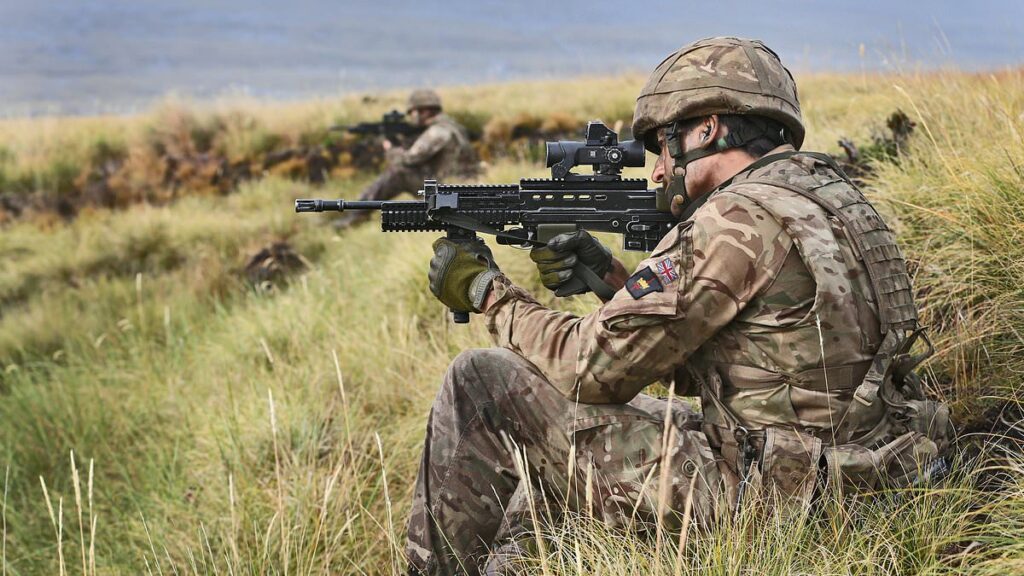Britain’s Armed Forces will undergo a high-tech revolution of drones and unmanned warplanes to prepare for the warfare of the 21st century, defence sources said last night.
The Government’s strategic defence review, to be published shortly, will learn the lessons of the war in Ukraine to herald a major change of direction.
Drones are already increasingly used in the Armed Forces mainly for close surveillance.
But the expected radical changes would dramatically expand their use and potentially involve equipping the Royal Navy with a squadron of unmanned planes operating from one of its carriers.
The RAF would get the ability to deploy laser-armed swarming drones deployed from the new Tempest fighter jet.
And the Army would be given a new drones regiment, with troops getting new long-range artillery and enhanced cyber capabilities.
Two weeks ago, Defence Secretary John Healey hinted at the changes as he said on X that ‘we’ve seen warfare changing [and] we are now learning the lessons from Ukraine’.
And standing in front of a Eurofighter Typhoon, he spoke of how ‘traditional, state-of-the-art fighter jets like this’ would be ‘working in future with drones you can put together in five minutes’.
Britain’s Armed Forces will undergo a high-tech revolution of drones and unmanned warplanes to prepare for the warfare of the 21st century, defence sources said
The MoS revealed last year how there were fears that Britain’s weak anti-missile defences left it wide open to attack if Russia aimed missiles at this country
Drones are already increasingly used in the Armed Forces mainly for close surveillance,but the expected radical changes would dramatically expand their use. Pictured: A solider prepares a drone in Ukraine
But last night, Tory defence spokesman James Cartlidge told The Mail on Sunday: ‘If we are about to see this vital new investment in our nation’s defences, it’s not before time.
‘But Labour’s record so far has been penny-pinching over actual, necessary procurement.’
There are claims that the defence review, led by former Nato secretary general and Labour peer Lord Robertson, will fail to live up to the Government’s boast that it was a ‘root and branch’ examination of the military’s real future needs.
The Tories have already predicted that the exercise would be a ‘damp squib’ amid reports that key major defence procurement decisions would not even be set out in the final report.
Under proposals, the Army would be given a new drones regiment with troops getting new long-range artillery and enhanced cyber capabilities. Pictured: A Vampire drone used on the frontline in Ukraine
Drone technology has been deployed in the ongoing war by Ukrainian and Russian militaries
Decades of underfunding have left the Armed Forces with major gaps including a shortage of warships, armoured vehicles and fighter aircraft.
The MoS revealed last year how there were fears that Britain’s weak anti-missile defences left it wide open to attack if Russia aimed missiles at this country.
The Ministry of Defence said reports of major new investment in drones was ‘speculation’.
A spokesperson added that the defence review ‘sets out a path for the next decade to transform the Armed Forces’.

